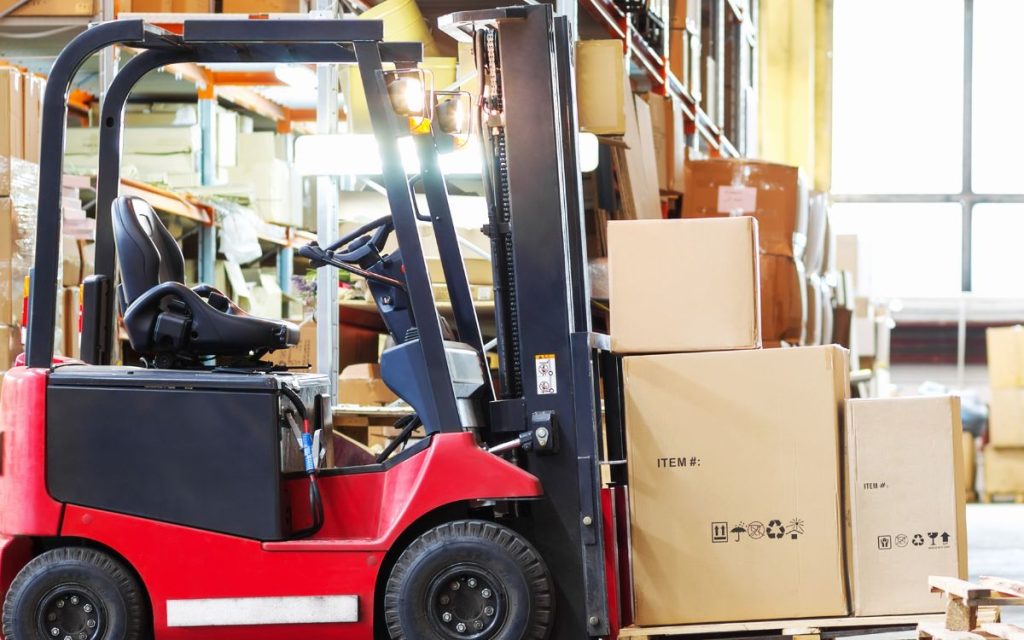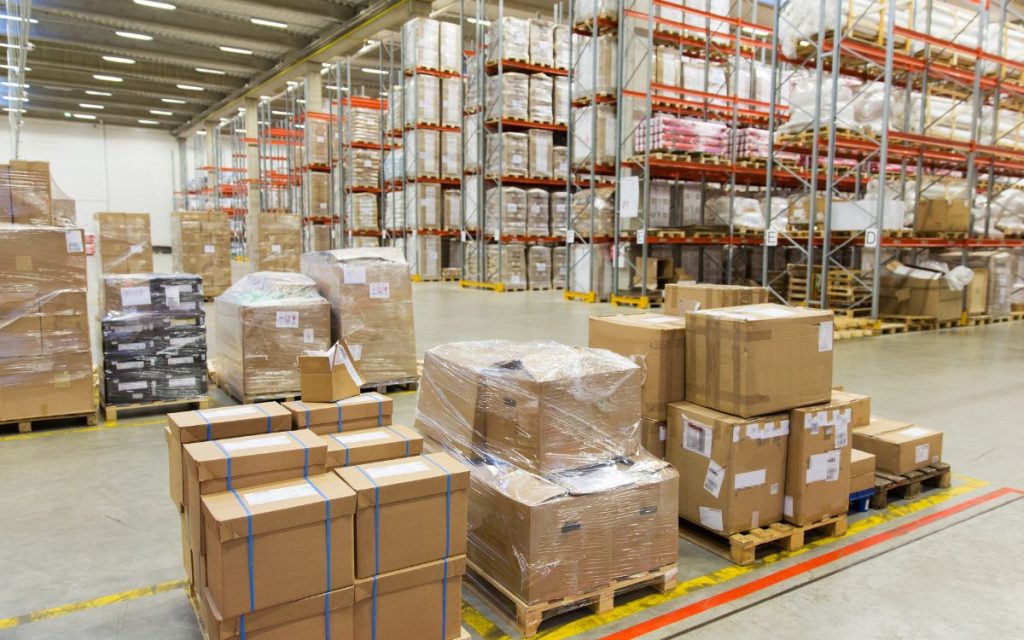Table of Contents
Third-part fulfillment can help reduce shipping and warehousing expenses. As e-commerce businesses grow, one of the biggest challenges they face is managing shipping and warehousing costs. For many companies, these expenses can account for a significant portion of their operational budget. While some businesses opt for in-house fulfillment, managing these aspects on their own can be complex and costly.
By switching to a third-party fulfillment provider like Ideal Fulfillment, businesses can significantly reduce shipping and warehousing expenses while improving efficiency and customer satisfaction. Let’s explore how third-party fulfillment helps cut these costs.

1. Reduce Shipping Costs Through Bulk Discounts
Third-party fulfillment providers like Ideal Fulfillment handle a large volume of shipments daily, giving them the ability to negotiate better rates with shipping carriers such as UPS, FedEx, and DHL. These bulk shipping discounts are typically not available to small or medium-sized businesses that operate in-house fulfillment.
Benefits:
- Negotiated Rates: Because third-party providers ship for multiple clients, they can leverage their combined shipping volume to negotiate significant discounts with carriers. These savings are passed on to you, reducing your overall shipping costs.
- Predictable Shipping Costs: Ideal Fulfillment can offer flat-rate shipping or predictable pricing models that help you avoid unexpected rate hikes or fluctuating carrier fees.
- Optimized Carrier Selection: Third-party fulfillment centers have sophisticated systems that automatically choose the most cost-effective carrier for each package, based on factors like weight, destination, and delivery speed. This can prevent you from overpaying for shipping, especially if your in-house system lacks similar capabilities.
2. Efficient Shipping Zones
In-house fulfillment operations often ship from a single warehouse or location, which can lead to significantly higher shipping costs for orders that must travel long distances. When a business only has one distribution center, customers who are located far from that center face increased shipping fees and longer delivery times. This is particularly problematic for e-commerce businesses that aim to serve a national or international customer base. That is why you need to find ways to reduce shipping and warehousing expenses.
Long-distance shipping can add a substantial burden to overall operational expenses, as carriers typically charge higher rates for longer routes. Additionally, the longer an item is in transit, the greater the risk of delays and damage, which can further inflate costs through returns or customer dissatisfaction. In an era where consumers expect fast and affordable shipping options, relying on a single warehouse can hinder a company’s ability to compete effectively.
Benefits:
- Multiple Warehouse Locations: Third-party fulfillment providers often have multiple warehouse locations across the country or even globally. By distributing your inventory across these locations, orders can be shipped from the closest warehouse, reducing shipping times and costs.
- Reduced Shipping Zones: Shipping zones are determined by the distance between the fulfillment center and the delivery address. Shipping from multiple locations means that most orders will fall within lower-cost shipping zones, saving you money on every order.
- Faster Delivery: In addition to saving money, shipping from multiple locations can lead to faster delivery times, which improves customer satisfaction and can result in repeat business.
3. Reduce Warehousing Costs
Warehousing is one of the largest hidden costs of in-house fulfillment. Renting, maintaining, and staffing a warehouse can be expensive, especially if your business experiences seasonal fluctuations in demand. In order to be successful, you need to find ways to reduce shipping and warehousing expenses.
Benefits:
- Pay-as-You-Go Storage: One of the key advantages of third-party fulfillment providers is that you only pay for the storage space you actually use. Rather than committing to a fixed amount of warehouse space, you can scale your storage needs up or down as your inventory levels fluctuate. This flexibility is especially valuable for businesses with seasonal spikes in demand.
- No Long-Term Leases: Renting a warehouse typically requires a long-term lease commitment, which can be costly and inflexible. Third-party fulfillment providers eliminate this requirement, allowing you to avoid long-term lease obligations and only pay for what you need.
- Reduced Overhead: When you outsource your fulfillment to a third-party provider, you don’t have to worry about utilities, security systems, or maintenance costs associated with running a warehouse. Ideal Fulfillment handles all of these expenses, allowing you to focus your resources on growing your business.
4. Optimized Inventory Management
Efficient inventory management is critical to reduce shipping and warehousing expenses and ensuring smooth operations within an e-commerce business. Striking the right balance in inventory levels is essential; holding too much inventory can lead to inflated storage fees, as excess stock takes up valuable warehouse space and incurs costs associated with managing that space. Additionally, products that sit in storage for extended periods can become obsolete, requiring businesses to discount or write off unsold items, further impacting profitability.
Conversely, maintaining insufficient inventory can result in stockouts, where customers attempt to purchase items that are not available. Stockouts can lead to lost sales opportunities and negatively affect customer satisfaction. When customers encounter out-of-stock items, they may choose to shop with competitors instead, leading to a loss of business and potential long-term customer relationships. Furthermore, frequent stockouts can damage a brand’s reputation, as customers may perceive the business as unreliable.
Benefits:
- Inventory Tracking Systems: Ideal Fulfillment uses advanced inventory tracking systems that give you real-time visibility into your stock levels. This allows you to optimize your inventory levels and avoid both overstocking and understocking, which can reduce your overall warehousing costs.
- Automated Reordering: With Ideal Fulfillment’s technology, you can set automated reorder points for your inventory. This ensures that you always have the right amount of stock on hand without having to overcommit to storage space.
- Minimized Dead Stock: Holding onto unsellable products for too long can be costly, as it takes up valuable warehouse space and ties up your capital. Third-party fulfillment providers help minimize dead stock by using predictive analytics and sales forecasting tools to keep your inventory lean and efficient.
5. Reduced Labor Costs
Managing in-house fulfillment requires a dedicated team to handle everything from receiving inventory to picking, packing, and shipping orders. The cost of hiring, training, and managing a fulfillment team can add up quickly, especially as your business grows. So, it’s important to find ways to reduce shipping and warehousing expenses.
Benefits:
- No Need for Fulfillment Staff: When you partner with a third-party provider like Ideal Fulfillment, you don’t need to hire and manage your own fulfillment staff. This saves you money on wages, benefits, and overtime, particularly during peak seasons when demand is high.
- Flexible Labor: Third-party providers scale their workforce as needed, allowing you to avoid the costs associated with hiring temporary workers or paying overtime during busy periods.
- Improved Accuracy: Ideal Fulfillment uses automated systems and trained staff to ensure that orders are picked, packed, and shipped accurately. This reduces the likelihood of costly shipping errors, returns, and customer complaints.
6. Access to Specialized Expertise
Shipping and warehousing involve complex logistics that can be difficult to manage in-house, especially for businesses without experience in these areas. It is important to find ways to reduce shipping and warehousing expenses. Mistakes can be costly, leading to delays, damaged products, or unhappy customers.
Benefits:
- Expert Logistics Management: Third-party fulfillment providers specialize in logistics, so they have the expertise and infrastructure needed to manage shipping and warehousing efficiently. Ideal Fulfillment can help you optimize your supply chain, streamline your shipping processes, and reduce your overall expenses.
- Customized Solutions: Ideal Fulfillment can create customized fulfillment solutions based on your specific business needs. Whether you’re looking for same-day shipping, international delivery, or custom packaging, they can provide cost-effective solutions tailored to your business.
7. Streamlined Returns Process
Returns management can be a costly and time-consuming process for businesses operating in-house fulfillment operations. As e-commerce continues to grow, so does the volume of product returns, with consumers often expecting hassle-free return processes. Managing returns internally not only demands significant resources but also requires careful planning and execution to minimize impact on overall profitability.
Handling returns effectively necessitates dedicated staff to process incoming items, assess their condition, and determine appropriate next steps, such as restocking, refurbishing, or disposing of products. This need for specialized personnel can lead to increased labor costs, as businesses must hire and train additional employees specifically for returns management. When a significant number of returns occur, these labor costs can quickly escalate, impacting the bottom line.
Benefits:
- Efficient Returns Management: Ideal Fulfillment has a streamlined returns process that reduces the time and effort required to process returns. They handle everything from inspecting returned products to restocking inventory, saving you the labor and warehouse space associated with managing returns in-house.
- Lower Return Shipping Costs: As with outbound shipping, Ideal Fulfillment can negotiate lower return shipping rates with carriers, reducing the cost of processing returns.

Reduce Shipping And Warehousing Expenses
Switching to a third-party fulfillment provider like Ideal Fulfillment can help your business significantly reduce shipping and warehousing expenses. By leveraging bulk shipping discounts, optimizing inventory management, and providing flexible storage solutions, Ideal Fulfillment allows you to lower your operational costs while improving efficiency. The added benefit of expertise, scalable solutions, and reduced labor expenses makes third-party fulfillment an attractive option for businesses looking to streamline their logistics and focus on growth.
